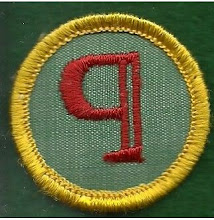You've got a completed manuscript! Congratulations! But is it really done?
Every publisher has a "slush pile" -- manuscripts that have promise, but...
Following are the top five varieties of manuscripts I've read in countless slush piles: (1) a "completed" manuscript that reads like a first or second draft--particularly common after the 3-Day Novel Contest and NaNoWriMo; (2) a writer who should know better; (3) endless description about the wonderful place I'm about to enter; (4) a great story that doesn't start in Chapter One; (5) a story that's all exposition and dialogue that's more exposition.
1. This reads like a second draft. There's a story in here, but I can hardly find it. Reject.
2. Author says he has a MFA in Creative Writing -- then he should know about arc of action -- there isn't one, even if I allow for the new-age-ish plotline and POV; horrible spelling, grammar and punctuation. Reject.
3. Great story premise but author spends first several chapters telling me all about the land of Oshtofoguwitz, I know where every hovel and castle is, but author doesn't get to the point of the travelogue until Chapter Eight. Recommend author edit and resubmit for reconsideration in six months.
4. Excellent story and intriguing characters; but too much exposition at beginning -- story doesn't start until chapter five. Start story with Chapter Five, fold in exposition and this is a winner. If author is willing to make these edits, accept manuscript.
5. Endless exposition and when there's dialogue it's something like, "Remember when we killed that girl, well, we'd better be careful the cops don't catch us." Reject.
You're a Genius
I'm willing to admit that we editors and publishers may know nothing of your genius. The publishing world has many stories about rejected manuscripts that eventually became best sellers. However, how many times have you heard the SAME stories about The Thorn Birds or J.K. Rowling? (I'm tired of hearing them too.)
If your manuscript is the fabulous work you think it is, then publishers will take notice. And if you keep getting rejection letter after rejection letter and you are positive that your work is exactly what you want it to be, explore the pros and cons of every publishing avenue open to you.
As Nayia Moysidis says in her blog -- Unpublished? You Don’t Actually Suck: "Each year, a publishing house can expect to receive about 10,000 unsolicited manuscripts. Out of every 10,000 manuscripts submitted, about 3 are published. The odds are horrifying, which is perhaps why so many undiscovered writers turn to self-publication... There's no one to blame. It's not the publishing houses. It's not the literary agencies. It's not even you. With so much talent in the publishing world, it's opportunity that's the problem."
Moysidis goes on to promote her project -- the Writer's Bloq, currently seeking funding on Kickstarter: "If your work doesn't have a home on the streets you recognize, it's time to start a new path. If your writing simply doesn't belong to the neighborhoods you've visited, it's time to join our Bloq." An interesting premise and worth a look.
______________
Next week: You got a manuscript accepted! Now comes the hard work: launching your book.
